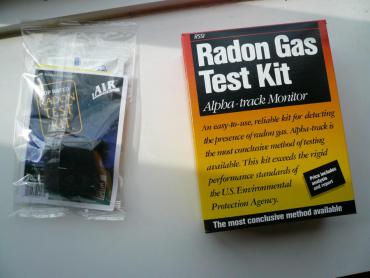Protect Your Health: Test Your House for Radon
January is National Radon Action Month and Public Health Madison and Dane County (PHMDC) urges all residents to test their homes for radon. You can’t see, smell, or taste radon, but it could be present at a dangerous level in your home. Radon is a naturally occurring, invisible, odorless, radioactive gas that develops in the soil and is common throughout Wisconsin. It is the leading cause of lung cancer among non-smokers and is estimated to cause 488 of the 2,900 lung cancer deaths each year in Wisconsin.
Radon can leak into your home from the ground and soil through cracks in foundations and walls. It can reach harmful levels particularly in winter months when homes and other buildings are closed up and heated. Long-term exposure to these high levels increases the risk for lung cancer.
According to Clint Marshall, Public Health Radon Specialist, it is estimated that 1 in 5 homes in Dane County have high levels of radon. Testing your home is the only way to find out if you have a radon problem and it is recommended that all homes get tested for radon. “Testing for radon is simple and inexpensive,” said Marshall. “Test kits can be purchased at local hardware or home product stores, usually for under $25. PHMDC also has test kits for sale at $10 per kit.”
Testing should be done in the lowest lived in level of your home. After leaving the opened kit in the room for the recommended amount of monitoring time, all you need to do is to send it to the laboratory for analysis. The lab will send you results within two or three weeks.
If testing shows that you do have a radon problem, you will need to install a system that prevents radon from entering your home. This system should be installed by a certified mitigation contractor. The cost of a radon mitigation system can vary, but typically runs around $1,200. Newly constructed homes should include features that reduce radon entry.
To purchase a test kit or to speak with the Public Health Radon Specialist, call the South Central Wisconsin Radon Information Center at (608) 243-0392.
For more information regarding radon, including a list of qualified radon remediation contractors, visit the Wisconsin Radon Information Web site at www.lowradon.org.
Contacts
- PHMDC Media Inquiries, 608-243-0482, communications@publichealthmdc.com
- PHMDC Environmental Health , (608) 242-6515
